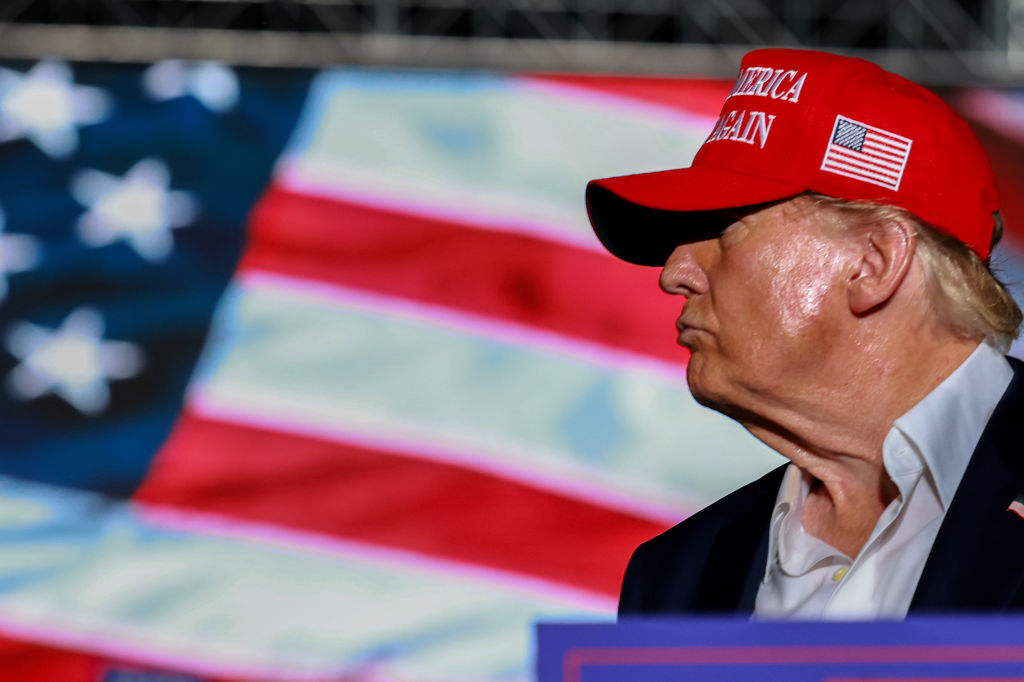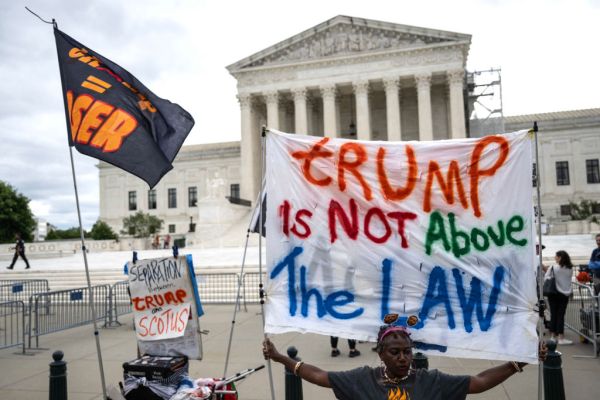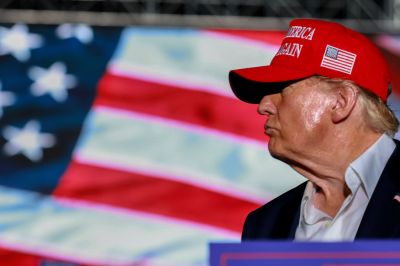Hello and welcome again to The Collision. We had a nice holiday break to celebrate and be grateful for our precious freedoms, but we’re back to our topsy-turvy reality. The Supreme Court’s decision on presidential immunity from last week (though it feels like last year!) has had some serious ramifications for practically all of Donald Trump’s outstanding legal issues. Plus, the big political question about Joe Biden’s future as the Democratic nominee has us contemplating a legal problem on the horizon. Strap in!
The Docket
- Hunter Biden has dropped his bid for a new trial on the federal gun charges he was convicted of last month. Biden’s legal team had already filed a motion to vacate his convictions and hold a new trial before quickly withdrawing it way back on June 17. The defense attorneys filed the same motion again, alleging that jurisdiction of the case had not been returned to the Delaware district court before the trial began. But on Tuesday Biden’s team withdrew its second attempt while acknowledging that Judge Maryellen Noreika did, in fact, have jurisdiction over the case when it went to trial.
- Michael Cohen is back in the news, and he wants the Supreme Court to weigh in on his effort to sue his former boss, Donald Trump. NBC News reports: “In a filing he will make with the court on Wednesday, Cohen asked for a review of a Court of Appeals for the Second Circuit decision that denied his request to hold Trump, former Attorney General Bill Barr and other Justice Department officials accountable for throwing him back in jail because he refused to agree not to write a book that was going to be critical of Trump.”
- While Manhattan District Attorney Alvin Bragg and other prosecutors in Trump’s case of falsifying business records were scheduled to testify before the “Weaponization Select Subcommittee” of the House Judiciary Committee this Friday—called by Republicans investigating the origins of Bragg’s indictment—that hearing appears to now be delayed. Rebecca Kaplan of NBC News reports a new hearing date has yet to be set.
The Post-Immunity State of Play

While the Democratic Party remains in full-on panic mode about its nominee and his possible future (more on that below), the GOP’s presumptive nominee continues to have a streak of good fortune. The Supreme Court’s 6-3 ruling on presidential immunity has upended just about everything related to Donald Trump’s trials—including the one that has already concluded with a guilty verdict. And while the court’s limited ruling is not the “TOTAL EXONERATION” that Trump claimed last week, practically speaking it appears that he could be looking at getting past all of his criminal problems for the foreseeable future.
Let’s start with the case in New York involving Trump’s falsifying business records in order to cover up hush money paid to Stormy Daniels. You may recall that shortly after his conviction, Trump’s sentencing hearing was set for today, July 11. But last week, Judge Juan Merchan informed the former president’s attorneys along with the Manhattan district attorney’s office that he was delaying that hearing in light of the Supreme Court decision. That’s because Team Trump alerted the New York court that it intended to file a motion to throw out the verdict.
Trump attorneys Todd Blanche and Emil Bove argued that the court’s decision meant that prosecutors “should not have been permitted to offer evidence at trial of President Trump’s official acts.” The prosecutors in District Attorney Alvin Bragg’s office, meanwhile, made it clear that while they disagreed with the defense’s argument, they wouldn’t protest the delay until the question was resolved.
So Merchan has set a date of September 6 to make a decision on the defense’s motion and, if he does not decide to throw out the verdict, Trump’s sentencing hearing could take place as soon as September 18. It’s difficult to suss out what Merchan intends to do, though the fact that he is even entertaining the motion suggests he might side with the defense. If Merchan denies the motion, however, that potentially puts Trump’s sentencing just weeks before the election, around the time when voters in multiple states will have already or will soon have the chance to vote early.
What about the federal case in Washington, D.C., where the issue of presidential immunity originated? Recall that the Supreme Court’s decision sends the actual decision for how much of Trump’s actions on and before January 6 are prosecutable back to D.C. District Court Judge Tanya Chutkan to decide. Trump’s public statements on social media? His involvement in recruiting alternative electors in states where he lost? It’s all up for review, even though some elements of the prosecution (particularly Trump’s directions to the Department of Justice to investigate voter fraud after the 2020 election) have been struck due to the court’s ruling.
Chutkan won’t take the case back from the Supreme Court until August 2, after which she’ll need to schedule hearings with federal prosecutors and Trump’s legal team, receive new briefings on the issue, and make her ruling. Anything short of a complete dismissal of the case would almost certainly spark more appeals from Team Trump. And as we wrote last week, all of this means there won’t be a Trump trial in D.C. before Election Day—nor at all, if Trump wins in November.
And the immunity decision is even having an effect down in South Florida, where Judge Aileen Cannon’s unhurried approach to pretrial motions has slowed progress in special counsel Jack Smith’s classified documents case. Last week, Cannon granted in part a request from Trump’s team to delay deadlines and a ruling on some outstanding motions until she rules on Trump’s other motions to dismiss the indictment based on presidential immunity. Even though Smith’s South Florida case, which concerns Trump’s actions following his departure from the White House, is perhaps the least dependent on resolving questions of presidential immunity, the Supreme Court’s ruling is helping to push this all off until after the election.
A Chaotic Electoral College Scenario
We don’t normally engage in “what ifs” in this newsletter, but what were once wild hypotheticals are quickly moving into the realm of possibility. So bear with us.
Imagine that President Joe Biden, against the odds, stays in the race and wins the election in November. After four grueling months on the campaign trail—endless travel, uncomfortable hotel suites, excruciatingly long days on his feet—he pulls out the victory and defeats Donald Trump. Then, the unthinkable happens and Biden becomes incapacitated. There isn’t a question about whether the 25th Amendment needs to be invoked; it happens within hours, and Kamala Harris takes over as acting president. President-elect Joe Biden is alive, but he acknowledges that he can no longer serve.
What happens then?
The 12th Amendment states that:
The person having the greatest number of votes for President, shall be the President, if such number be a majority of the whole number of Electors appointed; and if no person have such majority, then from the persons having the highest numbers not exceeding three on the list of those voted for as President, the House of Representatives shall choose immediately, by ballot, the President.
In other words, the presidency goes to the person who wins the majority of Electoral College votes out of the whole number available. In this case, if nobody gets 270 or more votes from members of the Electoral College, then the House chooses from the top three vote-getters.
In this scenario, Biden won more than 270 votes but also can’t be inaugurated. So who would get sworn in on January 20? In short, we don’t know.
In a sense, this scenario is the very reason we have an Electoral College, but electors’ hands may be tied. In 2020, the Supreme Court unanimously held that a state can force an elector to vote for the candidate who won his state’s popular vote for president. More than 30 states have such laws that bind their Electoral College members.
This means that some members of the Electoral College from states that Biden won would be free to vote for a different candidate on December 17. But other members—perhaps the majority of Biden’s delegates—would be bound to vote for Biden even though he cannot serve.
Trump would almost certainly be the top vote-getter in the Electoral College, followed by Biden, followed by whoever the unbound electors vote for. Presumably the unbound delegates would organize themselves so as to agree on a single person, though that process itself might devolve into a hot mess without any true consensus among Democrats as to who their chosen candidate is.
There would be several lawsuits filed trying to free the bound delegates, arguing that these laws were never meant to bind them to someone who can’t serve. But the text of Colorado’s law, for example, is as clear as day: “Each presidential elector shall vote for the presidential candidate and, by separate ballot, vice-presidential candidate who received the highest number of votes at the preceding general election in this state.” There’s no exception for death or disability.
One could argue it's impossible for the electors to vote for the candidate who can’t serve so they have to be released from their obligation, but “impossibility” is used in contract law when a person is literally unable to perform their end of the deal. For example, someone agreed to rent you a house, but the house was destroyed in a fire so the contract is voided. But if the landlord agreed to rent you their house or pay you $500, then the landlord owes you the $500. The other side will argue that it isn’t impossible to fulfill the legal obligations under this metaphorical contract; they just don’t want to anymore because it pushes the process to continue under the 12th Amendment.
States would try to change their laws in emergency state legislative sessions. But what would happen in states that voted for Biden but that have split legislatures or a Republican governor?
Should the election be thrown into the House of Representatives, each state delegation would vote among the Electoral College’s top three presidential vote-getters. (From the 12th Amendment: “The votes shall be taken by states, the representation from each state having one vote; a quorum for this purpose shall consist of a member or members from two-thirds of the states, and a majority of all the states shall be necessary to a choice.”)
In this scenario, Vice President Harris would still be the top vote-getter for vice president, meaning that the Electoral College can’t vote for her for president. This also means that Harris would automatically become the vice president—whether the House picks Trump or someone like Michigan Gov. Gretchen Whitmer.
And so we are left to wonder: Would Republicans in the House really hand the presidency to Trump in such a scenario? Would Republicans who have spent months making the case that Democrats are an existential threat to the republic really vote for the choice of Democratic electors? Would the country accept either outcome?
One More Thing
While the question of Biden’s future as nominee is on our minds: What choice do Democrats have if Biden refuses to step aside? There are 3,934 pledged delegates to the Democratic National Convention, which begins August 19. The party’s plan remains to hold a “virtual roll call vote” to nominate their candidate by August 7, though details remain murky. If Biden wins a simple majority of 1,968 on the first ballot, he is the nominee. Something like 80 percent of the delegates are pledged to vote for him.
But do the pledged delegates have to vote for him? The DNC rules state that “all delegates to the National Convention pledged to a presidential candidate shall in all good conscience reflect the sentiments of those who elected them.” Starting soon, a lot of folks are going to start asking what those words mean and whether their conscience will allow them to vote for someone who is on track for a historic loss against Donald Trump.







Please note that we at The Dispatch hold ourselves, our work, and our commenters to a higher standard than other places on the internet. We welcome comments that foster genuine debate or discussion—including comments critical of us or our work—but responses that include ad hominem attacks on fellow Dispatch members or are intended to stoke fear and anger may be moderated.
With your membership, you only have the ability to comment on The Morning Dispatch articles. Consider upgrading to join the conversation everywhere.